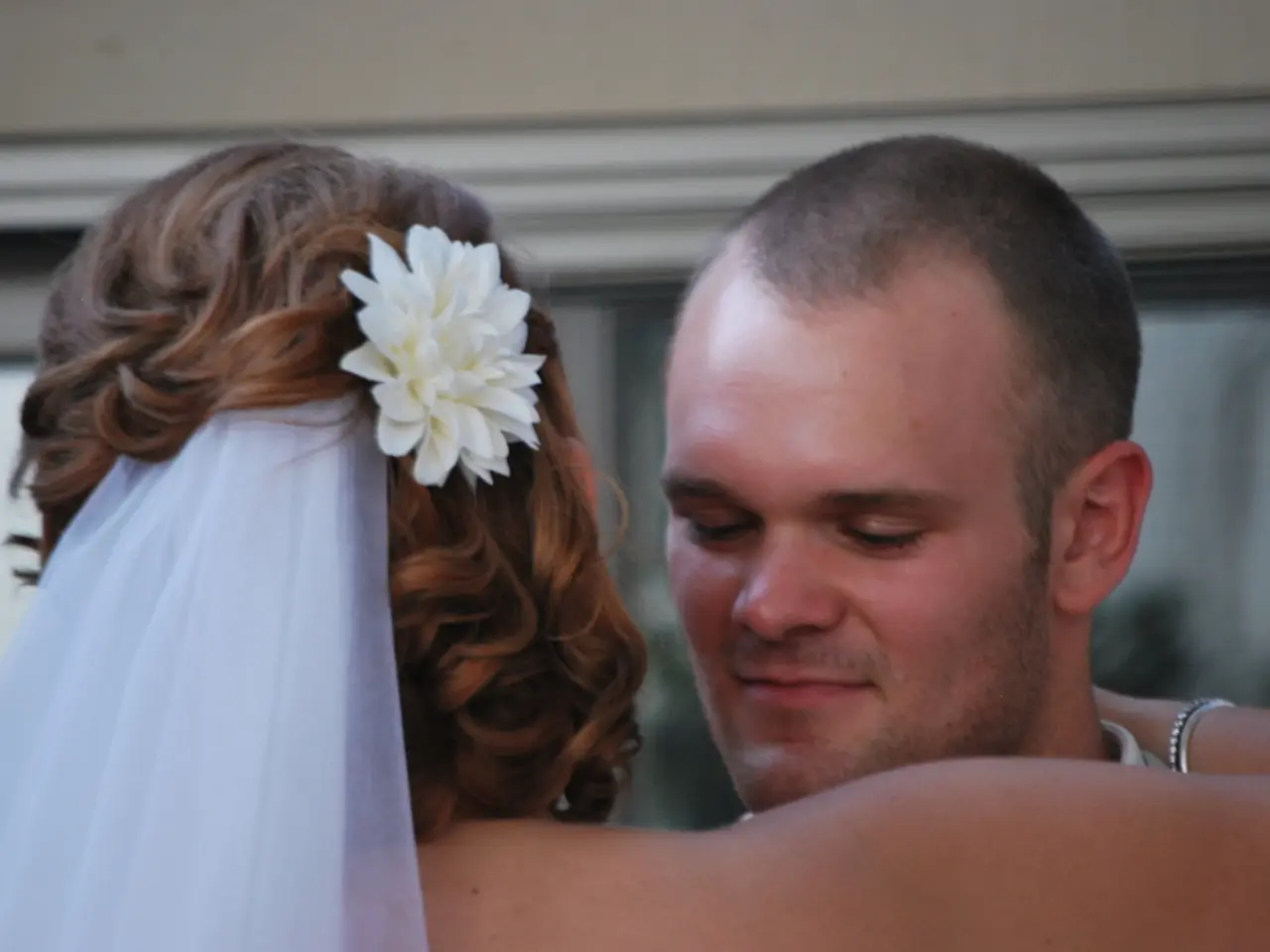The Essence of Anxious Attachment in Relationships: Characteristics and Triggers Explored
In the complex world of relationships, understanding and addressing insecure attachment styles is crucial. One such style, known as anxious attachment, can be traced back to infancy and follows individuals throughout their lives. Developed through interactions with primary caregivers, anxious attachment is characterised by traits such as jealousy, a lack of love in relationships, people-pleasing, overly helpful behaviour, and feelings of unworthiness [1].
When dating someone with anxious attachment, it's essential to avoid triggering statements that may deepen their insecurities. Statements like "Love is not enough, but I still love you" or "I don't know why I feel that way, the chemistry just must be off" can be harmful [2]. Instead, it's recommended to reassure them with statements like "It's alright, we'll get through this", "Let me give you a hug, it will be okay", "I'm not scared of your feelings, I want to listen to you", and "Even if I can't understand why you're feeling this way, I know what it's like to feel overwhelmed. How can I support you?" [2]
Strategies for overcoming anxious attachment in relationships focus on developing self-awareness, emotional regulation, healthy communication, and building trust and security with oneself and one’s partner.
Establishing healthy boundaries is key. Learning to distinguish what emotional responsibilities belong to you versus your partner helps prevent over-involvement and reduces anxiety triggered by their moods or withdrawal [1]. Diversifying energy and interests also plays a significant role. Shifting some focus from the partner to other relationships, hobbies, or activities decreases pressure on the partner to meet all emotional needs and fosters personal identity [1][2].
Practicing self-reflection and self-care is another essential aspect. Identifying root causes of anxious attachment through reflection, and adopting mindfulness, meditation, exercise, and creative pursuits can calm the nervous system and enhance self-understanding [2][3].
Effective communication is paramount. Openly discussing feelings, needs, and fears with the partner promotes transparency and mutual understanding, which builds intimacy and reduces attachment anxiety [2][3]. Learning emotional regulation skills, such as mindfulness, deep breathing, and self-compassion exercises, helps manage anxiety and regulate emotional responses [3][4].
Understanding attachment styles can foster compassion and teamwork in handling relationship challenges. Partners learning about each other’s attachment patterns can reduce blame and enhance supportive interactions [1]. Seeking professional support, such as therapy (individual or couples), including approaches like Emotionally Focused Therapy (EFT) or Gottman Method, can help work through deep patterns and build secure attachment behaviours [1][4].
Healing the inner child is another method of overcoming anxious attachment. This involves acknowledging and reparenting the suppressed inner child on a spiritual level, gaining its trust, and prioritising one's own needs as much as one's partner's [5]. If one can address the subtler emotions behind jealousy with a more nuanced and mindful perspective, it can open one up to experience a wider and more fulfilling range of emotion and life satisfaction [6].
In order to overcome anxious attachment triggers, it's advised to breathe, reground oneself in the present moment, pause to notice how one feels within their body, and allow oneself to simply feel [7]. If coping with jealousy via self-soothing, it's essential to realise that jealousy is often a defensive coping strategy for anxious attachment, and it points to what we are afraid of losing [6].
Overall, the process involves building resilience through self-awareness, boundary-setting, emotional regulation, and fostering secure, trusting connections rather than reactive or dependent dynamics [1][2][3][4]. By implementing these strategies, individuals can break free from the anxious-avoidant trap and cultivate healthier, more fulfilling relationships.
References: [1] https://www.psychologytoday.com/us/blog/the-emotional-life/201803/boundaries-are-the-key-to-overcoming-anxious-attachment [2] https://www.psychologytoday.com/us/blog/the-emotional-life/201803/diversifying-energy-and-interests-key-overcoming-anxious-attachment [3] https://www.psychologytoday.com/us/blog/the-emotional-life/201803/practicing-self-reflection-and-self-care-key-overcoming-anxious-attachment [4] https://www.psychologytoday.com/us/blog/the-emotional-life/201803/learning-emotional-regulation-skills-key-overcoming-anxious-attachment [5] https://www.psychologytoday.com/us/blog/the-emotional-life/201803/healing-inner-child-key-overcoming-anxious-attachment [6] https://www.psychologytoday.com/us/blog/the-emotional-life/201803/coping-jealousy-via-self-soothing-key-overcoming-anxious-attachment [7] https://www.psychologytoday.com/us/blog/the-emotional-life/201803/overcoming-anxious-attachment-triggers-key-overcoming-anxious-attachment
- Insecure attachment styles, particularly anxious attachment, can cause emotional challenges in relationships, requiring a connection of trust and understanding between partners.
- Romance can be a vital aspect of healing and growth in relationships, but it's important to approach it with a sense of mental-health awareness, avoiding triggering statements that may increase shame or insecurity.
- Art, be it creative pursuits or self-reflective practices, can play a significant role in emotional regulation and personal-growth, helping individuals understand their attachment patterns.
- Therapy, specifically tools like Emotionally Focused Therapy (EFT) or the Gottman Method, can foster a sense of security and intimacy in relationships, addressing deep-rooted attachment issues.
- Healthy lifestyles, including emotional regulation strategies such as mindfulness and meditation, exercise, and self-care, can contribute to the healing of attachment wounds and promoting mental health.
- By understanding and addressing attachment styles in relationships, partners can build a strong foundation of trust and emotional intimacy, fostering greater growth and self-development.
- Struggling with attachment anxiety can lead to feelings of jealousy and lack of trust in relationships, but acknowledging these emotions and adopting healthier coping mechanisms can lead to emotional attachment and relationship satisfaction.
- Relationship education-and-self-development is crucial in overcoming anxious attachment issues, as it equips individuals with the tools and knowledge to establish boundaries, communicate effectively, and manage their emotions.
- Developing a secure attachment can improve overall relationship quality, leading to a more fulfilling lifestyle and health-and-wellness.
- The process of overcoming anxious attachment requires ongoing effort and dedication, but by focusing on self-awareness, building trust, and fostering intimacy, individuals can break free from attachment insecurities and cultivate emotionally healthy relationships.




